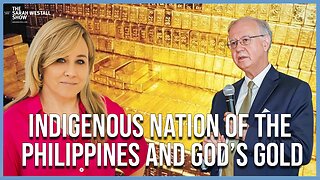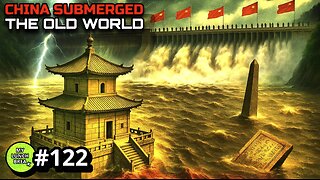Premium Only Content

Who Were the Seljuk Turks? - Crusades History
Seljuq, also spelled Seljuk, ruling military family of the Oğuz (Ghuzz) Turkic tribes that invaded southwestern Asia in the 11th century and eventually founded an empire that included Mesopotamia, Syria, Palestine, and most of Iran. Their advance marked the beginning of Turkish power in the Middle East.
A brief treatment of the Seljuqs follows. For full treatment, see Anatolia: The Seljuqs of Anatolia.
During the 10th-century migrations of the Turkish peoples from Central Asia and southeast Russia, one group of nomadic tribes, led by a chief named Seljuq, settled in the lower reaches of the Syr Darya (Jaxartes) River and later converted to the Sunni form of Islam. They played a part in the frontier defense forces of the Sāmānids and later of Mahmud of Ghazna. Seljuq’s two grandsons, Chaghri (Chagri) Beg and Toghrïl (Ṭugril) Beg, enlisted Persian support to win realms of their own, Chaghri controlling the greater part of Khorāsān and Toghrïl, at his death in 1063, heading an empire that included western Iran and Mesopotamia.
Under the sultans Alp-Arslan and Malik-Shāh, the Seljuq empire was extended to include all of Iran and Mesopotamia and Syria, including Palestine. In 1071 Alp-Arslan defeated an immense Byzantine army at Manzikert and captured the Byzantine emperor Romanus IV Diogenes. The way was open for Turkmen tribesmen to settle in Asia Minor.
Because of Toghrïl Beg’s victory over the Būyids in Baghdad in 1055, the Seljuqs came to be seen as the restorers of Muslim unity under the Sunni caliphate. While Alp-Arslan and Malik-Shāh expanded the empire to the frontier of Egypt, the Seljuq vizier Niẓām al-Mulk oversaw the empire’s organization during both their reigns. The Seljuq empire, political as well as religious in character, left a strong legacy to Islam. During the Seljuq period a network of madrasahs (Islamic colleges) was founded, capable of giving uniform training to the state’s administrators and religious scholars. Among the many mosques built by the sultans was the Great Mosque of Eṣfahān (the Masjed-e Jāmeʿ). Persian cultural autonomy flourished in the Seljuq empire. Because the Turkish Seljuqs had no Islamic tradition or strong literary heritage of their own, they adopted the cultural language of their Persian instructors in Islam. Literary Persian thus spread to the whole of Iran, and the Arabic language disappeared in that country except in works of religious scholarship.
#CrusadesHistory #MedievalHistory #EuropeanHistory
Turkish Translator İbrahim Gürbüz
-
 10:23
10:23
Parry This
1 year agoMarie "Madame" Curie - First Woman to Ever Win A Nobel Prize
89 -
 14:22
14:22
Tundra Tactical
7 hours ago $5.07 earnedTRUMP DOJ Decides CZ Scorpion Is A Decepticon.
43.3K15 -
 4:53:37
4:53:37
Culturama Podcast
6 hours ago $3.62 earnedEaster Special! Hollow Knight Stream!
33.3K4 -
 1:04:29
1:04:29
Sarah Westall
9 hours agoThe Philippines and Massive Stores of Gold for all the People of the World w/ Joseph Allain
60.9K43 -
 17:23
17:23
Exploring With Nug
17 hours ago $7.36 earnedCorvette Found Underwater! Continuing The Search For Laresha Walker!
50K2 -
 3:06:31
3:06:31
Damysus Gaming
6 hours agoWeaving into the Deep South: South of Midnight First Play! Part 2
10.6K2 -
 24:55
24:55
MYLUNCHBREAK CHANNEL PAGE
13 hours agoDams Destroyed China
70.6K43 -
 5:44:44
5:44:44
BigTallRedneck
7 hours agoFORTNITE - THE QUEST FOR THE OPAL PICKLE
10.9K3 -
 7:05:52
7:05:52
Razeo
10 hours agoEpisode 3: 1st playthrough - Mandragora. What happens when The Pancake King goes eats Waffles?
9.91K -
 1:45:48
1:45:48
Joker Effect
6 hours agoWHY IS EVERYONE SO ANGRY?! Just play on Motherland and have fun! Enjoy life!
7.86K1